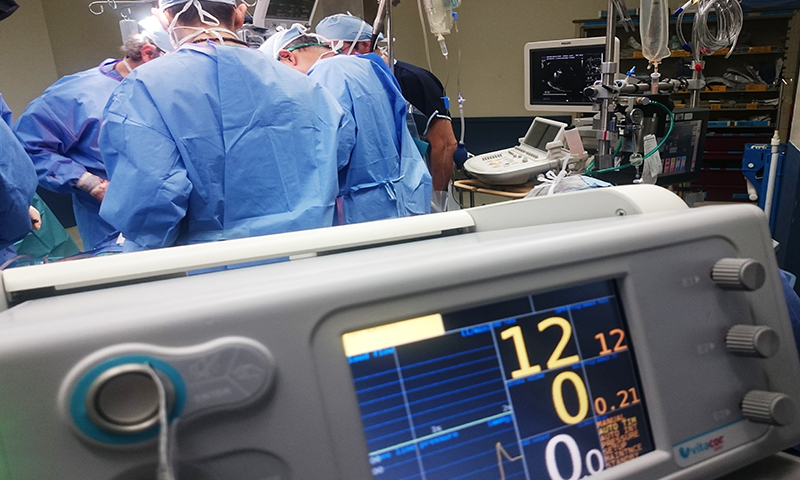It’s always tragic when a loved one passes away or is seriously injured due to a faulty medical device. It’s especially angering when that person’s family finds out that it could’ve been prevented by the company who manufactures that medical device.
The FDA does its best to recall these medical devices, but that usually only occurs after several patients have already suffered injuries from it. It also can take many years to get a case built against one of these medical device manufacturing companies, and in that waiting period, more people get hurt. .
Three of the biggest medical device lawsuit cases that occurred were for IVC filters, a hernia mesh, and Essure birth control. In all three lawsuits, thousands of patients were paid compensation for medical bills, and for the pain their medical device caused them.
In the case of a medical device failing, it’s almost always at the fault of the company who makes the device itself. It is rarely because of a mistake made by the surgeon. Sometimes the device can even be fixed or put back into place after complications occur; othertimes, the patient’s pain is endless.
IVC Filter Lawsuits
An IVC filter is a medical device that is placed in the patient’s vena cava (the largest vein in the body) to prevent blood clots from entering their lungs. IVC filters are made by a couple ofdifferent companies and have worked for some patients, but the majority had complications after the filter broke or became dislodged.
The broken IVC then passed to other places in the patient’s body, and sometimes even entered into other vital organs, which caused even more complications. Some of the side effects of this were severe abdominal pain, heart attacks, leg pain, and hospitalization, along with many other common symptoms.
The malfunctions associated with IVC filters caused over 9,000 patients to file lawsuits, and that was just by 2018, the number has since increased. Before these IVC filter lawsuits, there was a long period of time that passed, during which the FDA released many cautionary statements as well as a final warning.
After that, it started to become apparent that patients were never adequately informed of the huge risk for malfunction and breakage of the device upon receiving it; and that’s when the lawsuits started.
These are just a few of the FDA statements that werereleased about IVC filters:
- The Greenfield vena cava filter produced by Boston Scientific is recalled (2005)
- Advisory letter recommending the removal of IVC filters from patients as soon as possible (2010)
- IVC filter manufactured by Cordis Corporation is recalled (2013)
- Warning letter to C. R. Bard, Inc. for failure to properly warn patients of IVC filter dangers
As you can see, these FDA statements plus several more were released over at least the last10 years. Most of the lawsuits didn’t occur or settle until just recently or in the last 2 years.
IVC Filter Lawsuit Settlement Amounts
The patients who sued IVC Filter makers such as C. R. Bard, Cook Medical, and Boston Scientific, received massive payouts for their pain suffered from the medical device failure.
Top settlement payouts:
- $3.6 million awarded to the plaintiff – March 2018, Arizona
- $1.2 million – May 2018, Texas
- $3 million – February 2019, Indiana
Hernia Mesh Complications and Recall
A Hernia Mesh is a surgical mesh insert that supports damaged tissue caused by a hernia. It’s a quick fix to the problem, but it’s been the cause of a lot of complications in patients. Shortly after receiving a Hernia Mesh, some patients were hospitalized and reported complaints of:
- Pain
- Infection
- Hernia reoccurrence
- Obstruction in the large or small intestine
- Fluid buildup
- Bleeding
- Abnormal connection between organs
The Hernia Mesh not only caused complications, but it was also discovered that the material used to make some of them are unsafe for humans, which is a serious problem since they are surgically placed inside peoples’ bodies.
The FDA ended up recalling most Hernia Mesh devices. Some recalls were as early as 2005. The most significant Hernia Mesh recalls were for the: Composix Kugel Mesh, Ethicon Proceed Surgical Mesh, C-QuR V-pack Mesh, Ethicon Physiomesh Flexible Composite Mesh, and Versatex Monofilament Mesh.
Hernia Mesh Lawsuit
Suffering patients took action and sued the companies who make these medical devices. They were quite successful; over 50,000 Hernia Mesh lawsuits were settled by device manufacturers, and they had to pay out close to $1.1 billion.
Essure Birth Control Lawsuit
Essure is a type of permanent birth control implant made by Bayer that can be used as an alternative to a tubal ligation. The implant is surgically placed in the woman’s fallopian tubes and over the first three months, a barrier made of scar tissue forms which will prevent egg fertilization.
Many women saw this type of birth control as a great choice since there are no hormones involves, which usually would cause mood swings and weight gain.
However, since its creation, the FDA has released information on serious complications that occurred in Essure patients.
These complications caused intense and sometimes irreversible side effects in some women and lawsuits were taken up against Bayer, who makes Essure. There have been more than 3,700 lawsuits filed in not just the US, but in Canada and Brazil as well. Brazil even suspended the device from its market completely.
Complications Caused by Essure Birth Control:
- Abdominal pain
- Perforation of the uterus or fallopian tubes
- Unintended pregnancy
- Allergic reaction
- Hair loss
Final Thoughts
When filing any kind of claim when a medical device fails, it is important to ensure that you include all the potential defendants in the claim. These defendants include the manufacturer of the medical device that failed, the testing laboratory, the medical sales representative, the doctor, the hospital or clinic, and even the retail supplier – anyone that could have had any part in the failed medical device.
